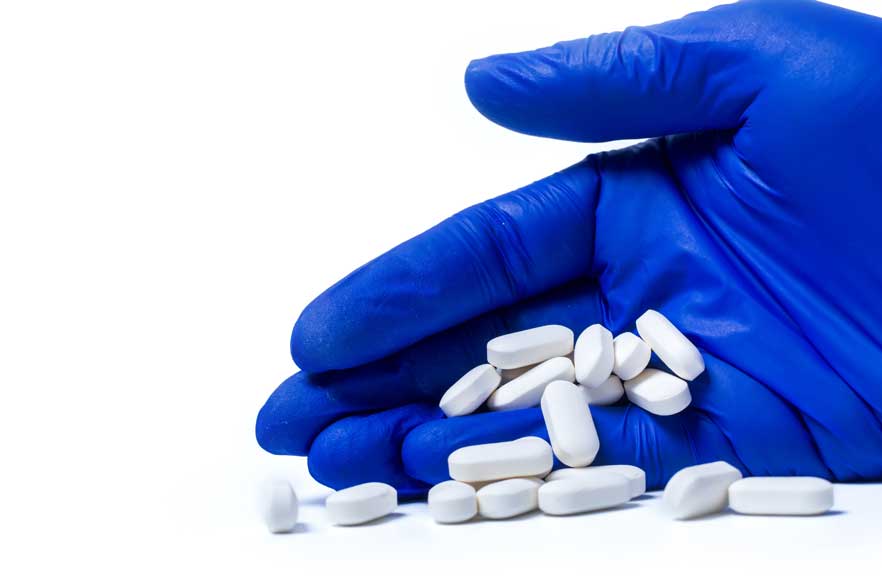If you’ve undergone a gastric sleeve surgery, managing pain can be tricky. Two years post-op, you might wonder if it’s safe to reach for common pain relievers like ibuprofen. While ibuprofen and other NSAIDs (nonsteroidal anti-inflammatory drugs) are widely used for pain management, they pose specific risks for individuals who have had bariatric surgery. Understanding these risks and exploring alternative pain relief options can help you make safer choices and protect your health in the long term.
Why are NSAIDs risky for bariatric patients?
Ibuprofen, along with other NSAIDs such as aspirin and naproxen, works by reducing inflammation and pain. However, these medications can also cause irritation to the stomach lining, which increases the risk of ulcers and gastrointestinal bleeding. For gastric sleeve patients, this risk is significantly higher because the surgery reduces the size of the stomach and alters its structure, making the lining more susceptible to damage from medications.
Studies have shown that even years after surgery, the risk of complications from NSAIDs remains elevated. The reduced stomach size and changes in digestive anatomy mean that protective mucus production is often decreased, which makes the stomach more vulnerable to the harsh effects of these medications. For many, even occasional use of ibuprofen could lead to complications like ulcers or gastritis, which could require further medical intervention.
Safer alternatives for pain management
Given the heightened risks associated with NSAIDs, it’s essential to consider safer alternatives for managing pain. Over-the-counter acetaminophen (Tylenol) is often recommended as a first-line option because it doesn’t carry the same risk of gastrointestinal irritation. However, it’s crucial to use acetaminophen responsibly, as overuse can lead to liver damage.
For those with chronic pain conditions or severe discomfort, your healthcare provider may suggest other options like prescription medications that are less harsh on the stomach, such as certain opioids or COX-2 inhibitors. Additionally, non-pharmacological approaches like physical therapy, acupuncture, or lifestyle modifications can play a vital role in managing pain without medication.
Tips for safe medication use after bariatric surgery
Living with a modified digestive system means making thoughtful choices about medication. Here are some key tips to help navigate pain management after a gastric sleeve:
- Consult with your healthcare provider: Always discuss with your doctor before taking any new medication, including over-the-counter drugs. They can provide personalized advice based on your health history and current condition.
- Avoid NSAIDs unless absolutely necessary: If you must use NSAIDs, ensure it’s under the strict supervision of a healthcare professional, and take the lowest effective dose for the shortest period necessary.
- Stay hydrated: Proper hydration is crucial for overall digestive health and can help reduce the risk of irritation when taking medications.
- Monitor for symptoms: Be vigilant for signs of gastrointestinal distress, such as stomach pain, nausea, or black stools, which could indicate bleeding or ulcer formation. Seek medical attention promptly if these occur.
Frequently asked questions about medications after gastric sleeve
- Can i take ibuprofen occasionally after my surgery? While occasional use might seem harmless, it’s best avoided due to the increased risk of ulcers and bleeding. Alternatives like acetaminophen are safer for most bariatric patients.
- What if i have chronic pain and need stronger medication? Chronic pain requires a tailored approach. Work closely with your doctor to find suitable medications or therapies that won’t compromise your gastric health. Options like certain opioids, which are less irritating to the stomach lining, or COX-2 inhibitors may be considered.
- Are there natural remedies i can use instead of medication? Yes, methods like heat therapy, physical therapy, gentle exercise, and mindfulness techniques such as meditation can help manage pain and reduce the need for medications.
Talk to your doctor: What to ask about using ibuprofen after gastric sleeve
It’s important to have an open dialogue with your healthcare provider regarding your pain management options. Here are some questions to guide your conversation:
- What are the safest pain relief options for me after gastric sleeve surgery?
- Are there any medications I should completely avoid?
- How can I manage pain without relying on over-the-counter medications?
- What symptoms should prompt me to stop a medication and seek medical help?
Your doctor is your best resource for navigating the complexities of medication use after gastric sleeve surgery. With their guidance, you can make informed decisions that prioritize both your comfort and your long-term health.










